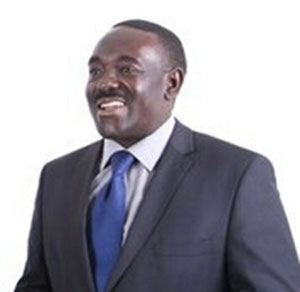
KAMPALA — As has become the norm, Primary Leaving Examination results released early this week by Education Minister Janet Kataha Museveni, had tongues wagging. Foremost among the issues that had my Namilyango College alumni in heated discussion, was the high drop out rate of pupils especially in Universal Primary Education (UPE) schools. How to integrate pupils who fall out of school with limited formal education is an issue that engaged our forum for some time.
As a former education editor at a national daily, I was conversant with many of the issues under the microscope. First among them was the need to empower young people with life skills that will enable them cope with the intricacies of living in a fast changing but underdeveloped country like Uganda in which resources are scarce and job openings an exclusive preserve of a select few.
Consensus is always hard to be reached on a highly emotional subject like education. But no one could contest the fact that some children are simply not wired for the current syllabus. Poor pedagogical skills from half baked teachers and clumsily prepared instructional materials often results in pupils/students losing interest in traditional subjects.
It would be prudent to introduce subjects that don’t require high cognitive ability and are easy to instruct such as Introduction to Carpentry, Basic Training in Electrical installation, A Beginner’s Guide To Motor Vehicle Mechanics, Sewing and Weaving, plus Baking and Cookery in Upper Primary School classes.
That way pupils can drop out with some elementary survival skills. After all, in today’s Uganda, a Nalongo Butto Ddene that fell out of school in P6 and started cooking for town folks has a higher chance of earning enough to look after her family than the thousands of university graduates roaming our streets with degree papers but no employable skills set.
The transport industry is awash with young men who ride Boda Bodas, driver Passenger Service Vehicles (PSVs) or earn a living as taxi touts despite tertiary level education. Question is: what if they had joined the industry straight out of primary school?
But we are getting a bit ahead of ourselves. To take you back a bit; not all children who start out in P1 have the competence to develop into lawyers, engineers, architects or doctors. The job of a competent education system is not to leave behind pupils just because of incompetence in a certain area. An incompetent mathematician could be a valourous soldier. A poor writer could develop into a world class chef.
A clueless physicist may grow into a clothes designer of international repute. Our current syllabus doesn’t capture any of these people. That’s why kids are falling out of school without an employable skills set, or worse still, that’s why our graduates are job seekers rather than job creators.
How else would you know that the clueless mathematician could be the future Nalongo of Katwe (owner of famous restaurant of traditional meals), unless you compel all primary skills pupils to lessons in cookery ? A student who excels in Luwombo preparation would have her career path identified early, enabling her to start out in life with a proper skills set.
In the current education setting, it’s virtually impossible to tap exceptional talent like the world famous jazz musician Isaiah Katumwa. The colonial approach of training pupils to be clerks/ office workers, is what has let Uganda down. Our elite equate success with sitting in an air conditioned office, yet sucess can be achieved in a five star hotel kitchen, music studio, farm or carpentry workshop.
Just recently, we were introduced to a certain ‘Doctor’ David Ssenfuka, a P7 dropout, whose wizardry in creation of herbal medicines to treat previously terminal illnesses like diabetes and cancer, was never, and could never be captured by our archaic education system. In fact, the German overseas development arm GTZ emphasises skilling. They prefer to help impart vocational skills on third world people rather than spending money on classroom education. Rightly so. To them, ’emirimu gyemikono’ are key to Uganda’s future, not geography of the prairies.
A good education system must start with excellent teachers. Since private schools are among the most lucrative enterprises in the land, they ought to begin recruiting the country’s best brains and success stories as tutors. All they need to do is equip them with pedagogical skills and correct instructional materials. Business success stories and doyens of industry are the ones equipped to identify, nurture and panel beat talent into world beaters. I would personally love to see Isaiah Katumwa instruct my children’s music class. The age in which teaching was the domain of second rate academicians are gone.
Learning is a lifelong process. Everlasting honour will always be reserved for teachers who can inculcate an unquenchable thirst for new knowledge in their students. The teacher who can best spark creativity, innovation and imbue values of hard work, integrity, selflessness, honour, respect for self and others will always be held on a pedestal. But lest we forget, the job of skilling our children to be responsible citizens must start at home. A child’s first teacher has to be the parent.




